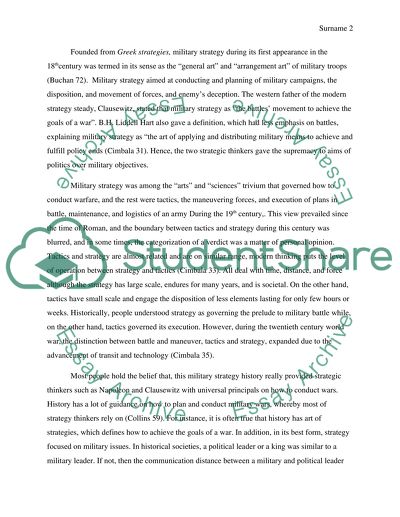Cite this document
(“Strategic theory Research Paper Example | Topics and Well Written Essays - 1750 words”, n.d.)
Strategic theory Research Paper Example | Topics and Well Written Essays - 1750 words. Retrieved from https://studentshare.org/military/1496808-strategic-theory
Strategic theory Research Paper Example | Topics and Well Written Essays - 1750 words. Retrieved from https://studentshare.org/military/1496808-strategic-theory
(Strategic Theory Research Paper Example | Topics and Well Written Essays - 1750 Words)
Strategic Theory Research Paper Example | Topics and Well Written Essays - 1750 Words. https://studentshare.org/military/1496808-strategic-theory.
Strategic Theory Research Paper Example | Topics and Well Written Essays - 1750 Words. https://studentshare.org/military/1496808-strategic-theory.
“Strategic Theory Research Paper Example | Topics and Well Written Essays - 1750 Words”, n.d. https://studentshare.org/military/1496808-strategic-theory.


